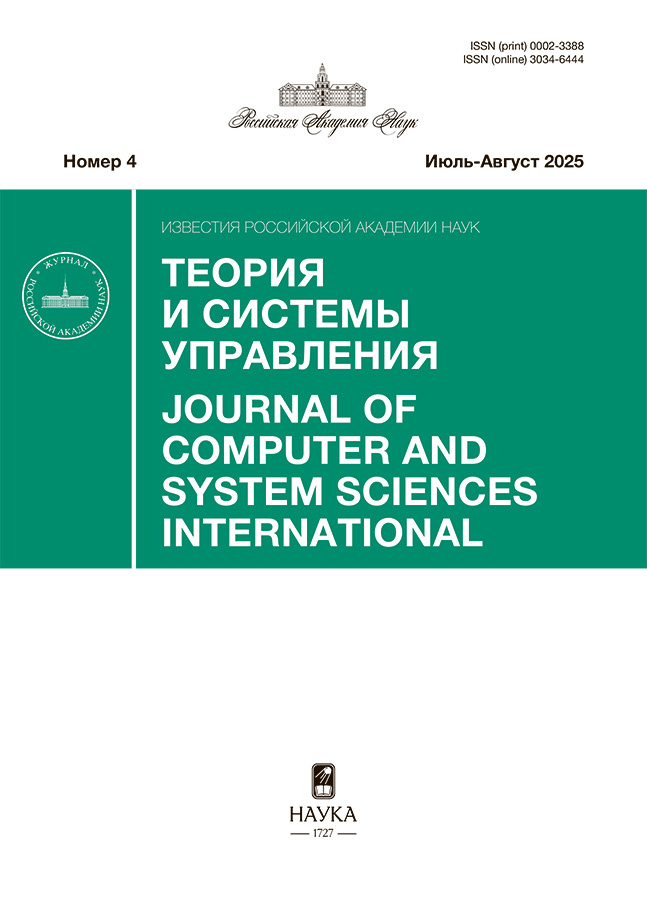On the issue of based on advanced laser technology GLONASS improving
- Autores: Kolodochkin E.S.1, Krasilshchikov M.N.2, Kruzhkov D.M.2, Pasynkov V.V.1
-
Afiliações:
- JSC Scientific and Production Corporation “Precision Instrument Engineering Systems”
- Moscow Aviation Institute (National Research University)
- Edição: Nº 4 (2025)
- Páginas: 160-170
- Seção: НАВИГАЦИОННЫЕ СИСТЕМЫ
- URL: https://freezetech.ru/0002-3388/article/view/689806
- DOI: https://doi.org/10.31857/S0002338825040111
- EDN: https://elibrary.ru/BPNMKX
- ID: 689806
Citar
Texto integral
Resumo
The task of improving the characteristics of GLONASS in the context of the prospects for the development of global satellite navigation systems is described. The authors consider as key areas of research and development related to the advanced laser and quantum optical hardware integration into orbital constellation’s technological processes. The main factors that currently hinder the joint processing of measurements generated on board and on the ground from various sources are discussed. Ways to eliminate these factors are proposed by developing and implementing special information technologies for comparing time scales and digitizing measurements and clarifying delays in the functioning paths of optical hardware. Experimental results are obtained and estimates of the measurements formed in this way are presented, and conclusions are drawn about their possible use in the interests of improving GLONASS accuracy characteristics.
Texto integral
Sobre autores
E. Kolodochkin
JSC Scientific and Production Corporation “Precision Instrument Engineering Systems”
Email: kruzhkovd@mail.ru
Rússia, Moscow
M. Krasilshchikov
Moscow Aviation Institute (National Research University)
Email: kruzhkovd@mail.ru
Rússia, Moscow
D. Kruzhkov
Moscow Aviation Institute (National Research University)
Autor responsável pela correspondência
Email: kruzhkovd@mail.ru
Rússia, Moscow
V. Pasynkov
JSC Scientific and Production Corporation “Precision Instrument Engineering Systems”
Email: kruzhkovd@mail.ru
Rússia, Moscow
Bibliografia
- Ivanyukhin A.V., Ivashkin V.V., Petukhov V.G., Sung Wook Yoon. Designing Low-Energy Low-Thrust Flight to the Moon on a Temporary Capture Trajectory // Cosmic Research. 2023. V. 61. № 5. P. 380–393.
- Sung Wook Yoon, Petukhov V.G., Ivanyukhin A.V. An Approach for End-to-end Optimization of Low-thrust Interplanetary Trajectories Using Collinear Libration Points. Acta Astronautica. 2024. V. 221. P. 12–25.
- Petukhov V.G., Yoon S.W. Optimization of a Low-Thrust Heliocentric Trajectory Between the Collinear Libration Points of Different Planets // Cosmic Research. 2023. V. 61. P. 418–430.
- Kozorez D.A., Starkov A.V. Distribution of Information Fluxes in Complex Systems // Russian Engineering Research. 2022. V. 42. № 9. P. 2–5.
- Krasilshchikov M.N., Kruzhkov D.M., Pasynkov V.V. On The Implementation of Information Technology for Refining the Ephemerides of GLONASS Spacecraft Based on the Use of Advanced Intersatellite Measurment Hardware // J. Computer and Systems Sciences International. 2023. № 5. P. 147–159.
- Kruzhkov D.M. Krasil’shchikov M.N., Pasynkov V.V. Current Problems of Improving the Coordinate-Time Support of GLONASS and Promising Methods for Their Solution. 1. Alignment of Coordinate Systems Used by Various Information Technologies to Refine the Geocenter’s Position // J. Computer and Systems Sciences International. 2019. V. 58. № 4. P. 648–657.
- Kruzhkov D.M. Krasil’shchikov M.N., Pasynkov V.V. Current Problems of Improving the Coordinate-Time Support of GLONASS and Promising Methods for Their Solution: II. Alignment of Coordinate Systems Used by Various Information Technologies to Refine the Universal Time // J. Computer and Systems Sciences International. 2019. V. 58. № 5. P. 766–773.
- International Earth Rotation Service., 17.05.2025. https://iers.org
- Система прецизионной навигации Министерства обороны Российской Федерации. 17.05.2025. https://www.ktopoverit.ru/prof/opisanie/86327-22.pdf
- Информационно-аналитический центр координатно-временного навигационного обеспечения. 17.05.2025. https://glonass-center.ru/aboutIAC
- European Space Agency. 17.05.2025. https://www.esa.int
- Mendes V.B., Pavlis E.C. High-accuracy Zenith Delay Prediction at Optical Wavelengths // Geophysical Research Letters. John Wiley & Sons, Ltd, 2004.
Arquivos suplementares











